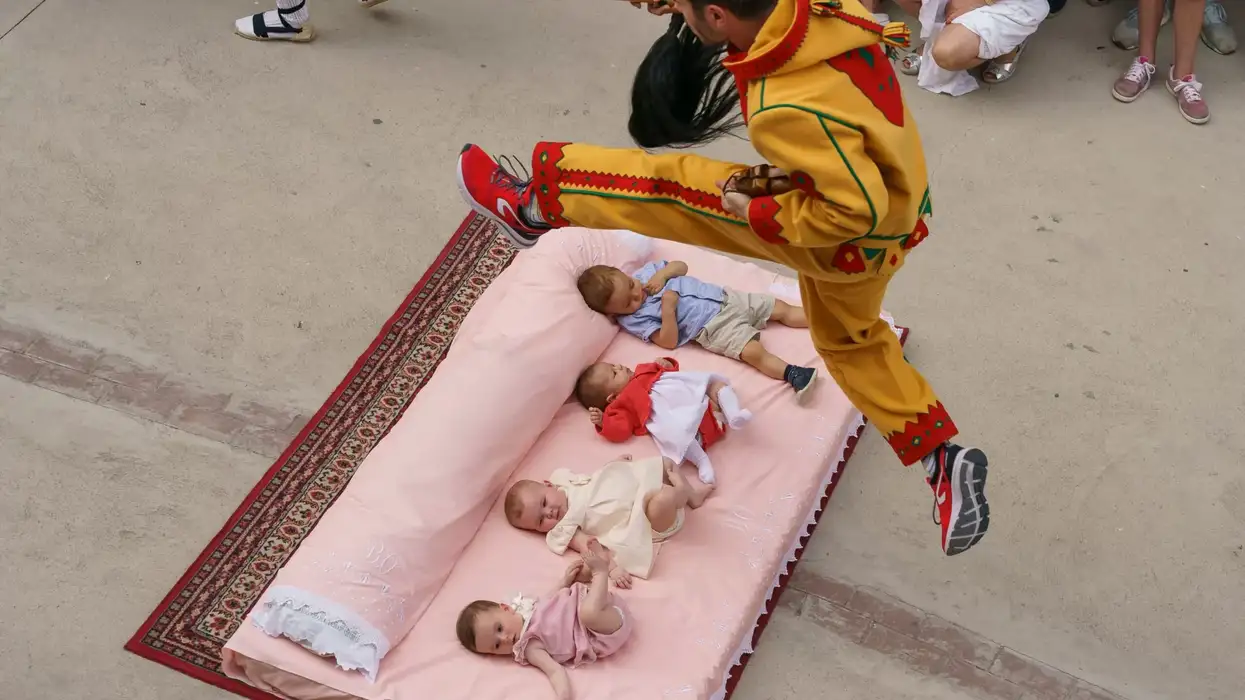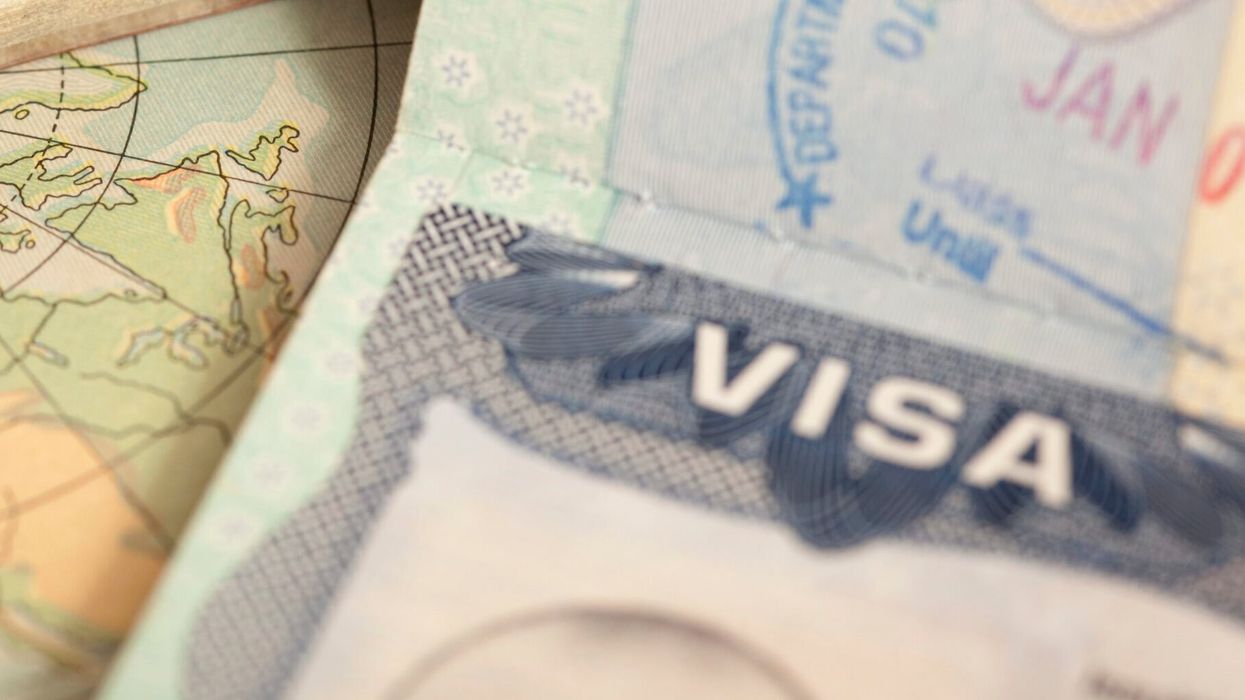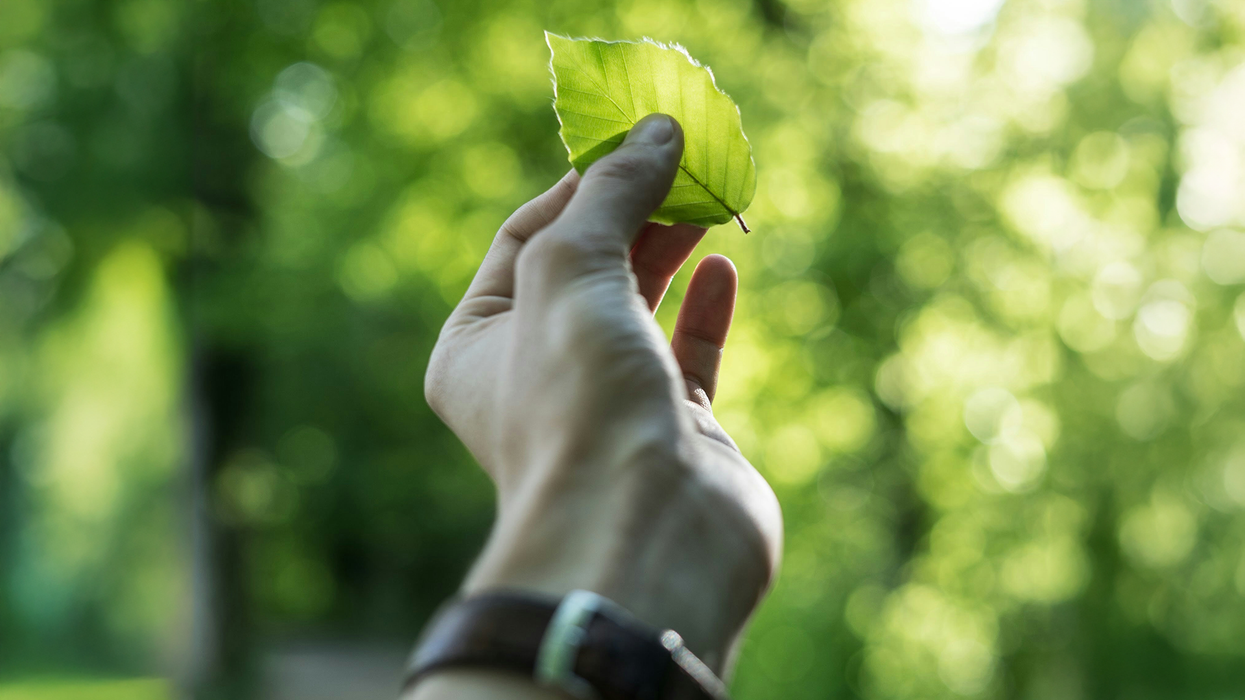We all know, that Spain, a country with the picturesque county is also popular for its unique festivals like La Tomatina, or the popular bull race the Pamplona encierro. One more such unique festival with a unique tradition is celebrated every year.
Every year in mid-June, the small Spanish village of Castrillo de Murcia in the Northern states of Spain comes alive with one of the world's most unique festivals: El Colacho, popularly known as 'The Devil Jump'. The festival, which has its roots in the 17th century, involves men dressed as the Devil leaping over infants laid on mattresses in the streets, a tradition believed to cleanse babies of sin and protect them from illness.
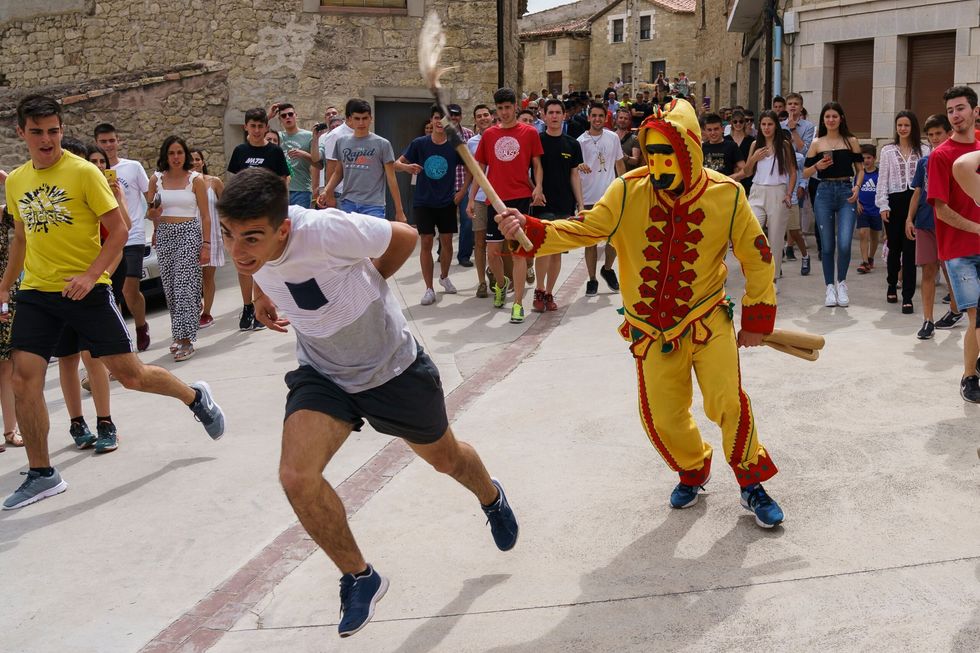
The festival begins early in the morning with a procession through the village led by serious men dressed in black hats and cloaks, part of the brotherhood of the blessed sacrament of Minerva.
The men dressed in red and yellow devil costumes with their faces covered with masks and hoods, chasing away and whipping the young villagers who gleefully taunt them. This theatrical and lively display is a precursor to the main event later in the day.
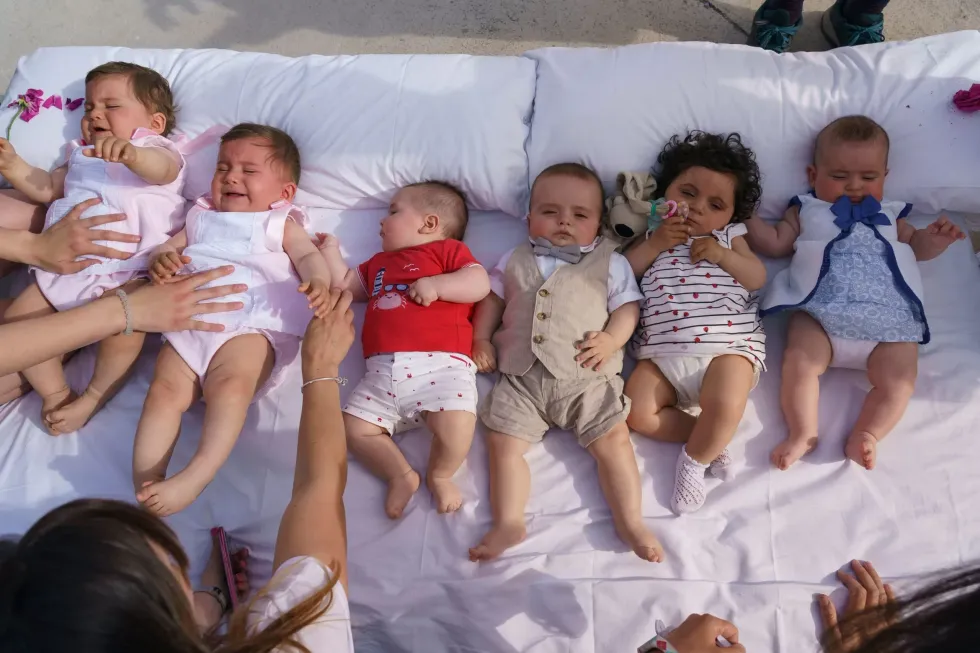
In the late afternoon, as babies born in the previous year are placed on mattresses in the streets, spaced about 200 meters apart. The 'devils' leap over the babies, absorbing their sins in the process.
This ritual is symbolic, aiming to protect the infants from evil spirits and disease. Once the leap is completed, the village priest blesses the babies, and young girls scatter rose petals over them.
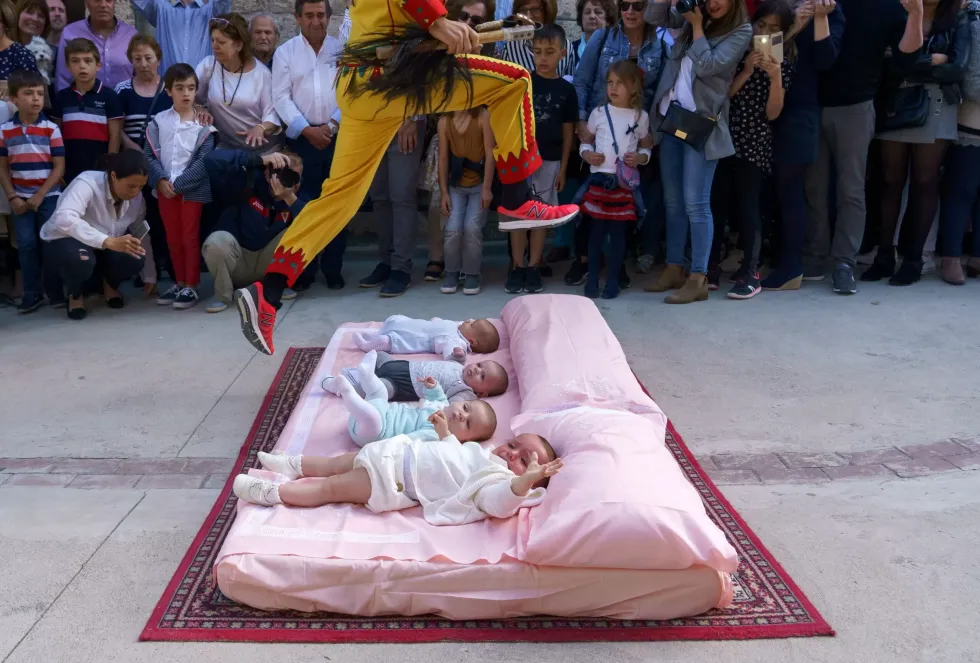
The origins of the tradition remain shrouded in mystery, but its impact on the community is clear. Mario Gonzales, who helps organize the event, notes that while the town has a population of around 120, the festival attracts people from across the world. Babies with some connection to the village are even imported for the ceremony.
Despite its seemingly hazardous nature, baby jumping is conducted with great care. The village priest blesses the babies immediately after the jump.
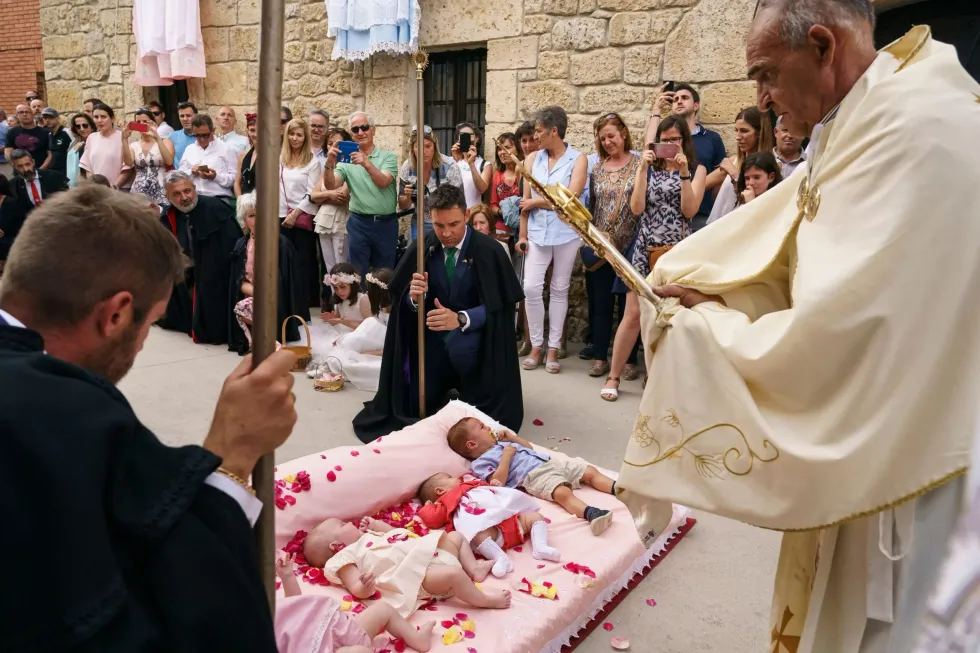
El Colacho is not just about the baby jumping, though. It’s a week-long celebration of Corpus Christi, featuring traditional music, food, and drink. The festival offers a chance for families and friends from different generations and even continents to come together, share stories and uphold a centuries old tradition.
For many villagers, the baby-jumping festival is a significant part of their cultural heritage, and the sense of community it fosters is invaluable.
In the end, El Colacho is more than just a bizarre ritual; it's a vibrant celebration of life and community that brings people together from all walks of life. Whether the festival is seen as a literal blessing or a symbolic tradition, the joy and unity it inspires are undeniable.
